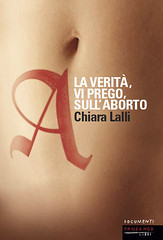 L’appello rivolto da Darwin al Ministro degli Esteri per la brutta storia dei cinque infermiere di nazionalità bulgara e un medico palestinese non sembra avere suscitato un successo travolgente in Italia. Forse la Libia è troppo lontana. I 6 sono in galera da 8 anni in base ad un’accusa ingiusta e assurda.
L’appello rivolto da Darwin al Ministro degli Esteri per la brutta storia dei cinque infermiere di nazionalità bulgara e un medico palestinese non sembra avere suscitato un successo travolgente in Italia. Forse la Libia è troppo lontana. I 6 sono in galera da 8 anni in base ad un’accusa ingiusta e assurda.
Sul New England Journal of Medicine, HIV Injustice in Libya — Scapegoating Foreign Medical Professionals (14 dicembre 2006):
On December 19, 2006, a Libyan court is scheduled to announce its verdict in the trial of five Bulgarian nurses and one Palestinian doctor who have languished in prison for 8 years on charges that they intentionally injected more than 400 Libyan children with human immunodeficiency virus (HIV) in 1998, while they were guest workers at a children’s hospital. In 2004, the six were tried and sentenced to death. A new trial was ordered last year after international protests, but scientists and politicians are worried about the defendants’ fate.Continua.
The scientific evidence being used against them “is so irrational it’s unbelievable,” said Vittorio Colizzi, an infectious-disease specialist based at Tor Vergata University in Rome and one of a number of international scientists who have visited Libya to study the case and treat the children. But such scientists have not been called to testify in the current trial, which began in late August.
The HIV outbreak at Al-Fateh Children’s Hospital in Benghazi, Libya, that peaked in 1998 has been studied in detail by international experts, who have pored over patient charts, tested hundreds of blood samples to characterize the virus, and observed patient care activities at the hospital. All have concluded that the outbreak was nosocomial, resulting from the reuse of contaminated medical equipment. The efforts to understand the outbreak include a site visit by the World Health Organization (WHO) conducted in December 1998 and January 1999 that resulted in a 1999 report, as well as an investigation by Colizzi and Luc Montagnier, a codiscoverer of HIV, who were hired by the Libyan government, were given broad access to the hospital and patients, and completed their report in March 2003.
But in the Libyan court, such evidence does not seem to matter. “Science has not been respected in this court; without the scientific evidence, there’s no way there could be a fair trial,” said Richard Roberts, a winner of the Nobel Prize in Physiology or Medicine, who hand-delivered a letter of protest signed by more than 100 Nobel laureates to the Libyan Mission to the United Nations in New York in late October. “The Libyan government doesn’t want to admit that their hospital had a problem with hygiene that spread HIV,” said Roberts. “These people were the ideal scapegoats: they were foreigners. And the Libyans knew that the Bulgarian and Palestinian governments couldn’t kick up much of a fuss.”


























Nessun commento:
Posta un commento